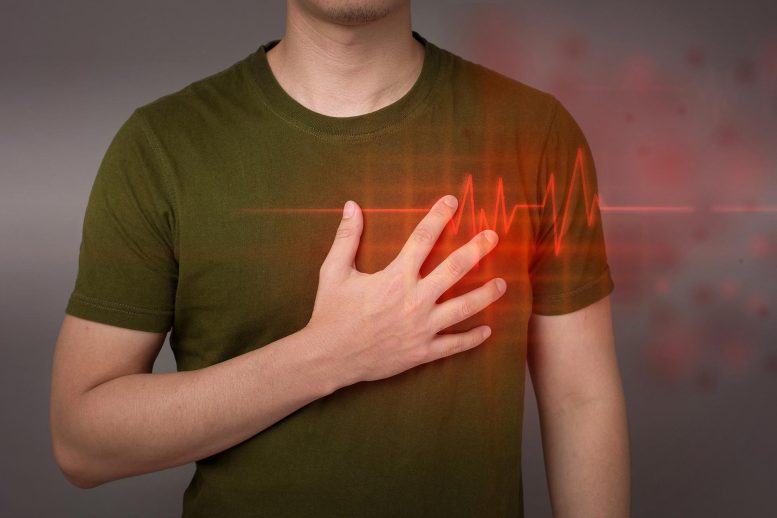
A new study published in The BMJ confirms previous reports of an increased risk of heart inflammation (myocarditis or myopericarditis) after vaccination with BNT162b2 (Pfizer-BioNTech) and mRNA-1273 (Moderna) but shows that the absolute number of cases was low, even in younger age groups, providing further evidence to support the overall safety of mRNA vaccines for COVID-19.
Just 1.6 cases per 100,000 in younger individuals (12-39 years) after Pfizer-BioNTech vaccine; Findings support the overall safety of mRNA vaccines for COVID-19.
A study published by The BMJ today (December 16, 2021) provides more reassuring data on the risk of heart inflammation (myocarditis or myopericarditis) after mRNA vaccination against the COVID-19 virus.
It confirms previous reports of an increased risk after vaccination with BNT162b2 (Pfizer-BioNTech) and mRNA-1273 (Moderna) but shows that the absolute number of cases was low, even in younger age groups, providing further evidence to support the overall safety of mRNA vaccines for COVID-19.
Myocarditis (inflammation of the heart muscle) and myopericarditis (inflammation of the outer lining of the heart) are rare but serious conditions, usually triggered by a viral, bacterial, or fungal infection.
Recent reports and studies have indicated an increased risk of heart inflammation after mRNA vaccination, particularly after the second dose. But as yet, no study has investigated the association using information from a complete population.
To address this, researchers in Denmark used national healthcare data to look for links between mRNA vaccination and a hospital diagnosis of myocarditis or pericarditis, increased blood troponin levels (a measure of myocardial damage), and a hospital stay lasting more than 24 hours.
Their analyses included nearly 5 million Danish residents aged 12 years or older who received either the Pfizer-BioNTech or Moderna vaccine.
Participants were monitored from October 1, 2020 to October 5, 2021, and a range of potentially influential factors were taken into account, such as age, sex, vaccine priority group, and underlying health conditions.
During follow-up, 269 participants developed myocarditis or myopericarditis, of whom 108 (40%) were 12-39 years old and 196 (73%) were male.
Overall, the results show a strong association between vaccination with Moderna and myocarditis or myopericarditis, while vaccination with Pfizer-BioNTech was only associated with an increased rate of myocarditis or myopericarditis among women.
The rate of myocarditis or myopericarditis was higher for Moderna vaccination than for Pfizer-BioNTech vaccination. Nevertheless, the absolute number of events after either vaccine was low, and cases were predominantly mild.
For example, of 3,482,295 individuals vaccinated with Pfizer-BioNTech, 48 developed myocarditis or myopericarditis within 28 days of vaccination (an absolute rate of 1.4 per 100,000) compared with unvaccinated individuals.
Among women, the absolute rate was 1.3 per 100,000 and in men it was 1.5 per 100,000. Among 12-39 year olds, the absolute rate was 1.6 per 100,000, and in the youngest age group (12-17 year olds) it was only 1 per 100,000 within 28 days of receiving the Pfizer-BioNTech vaccine.
Of 498,814 individuals vaccinated with Moderna, 21 developed myocarditis or myopericarditis within 28 days of vaccination (an absolute rate of 4.2 per 100,000) compared with unvaccinated individuals.
Among women, the absolute rate was 2 per 100,000 and in men it was 6.3 per 100,000. Among 12-39 year olds, the absolute rate was 5.7 per 100,000 within 28 days of receiving the Moderna vaccine.
Both vaccines were also associated with around a 50% reduced risk of cardiac arrest or death (the most severe manifestations of myocarditis or myopericarditis) compared with unvaccinated individuals.
In contrast, there was a 14-fold increased risk of cardiac arrest or death 28 days after a positive COVID-19 test compared with uninfected individuals.
This is an observational study, so can’t establish cause, and the researchers point to some potential sources of bias, such as increased public awareness of potential side effects of vaccines, that may have affected the results.
However, they say this was a well designed study based on high quality healthcare data for a complete population, and results were largely unchanged after additional analyses, suggesting that they withstand scrutiny.
As such, the researchers conclude that mRNA vaccination with Moderna and Pfizer-BioNTech is associated with an increased risk of myocarditis or myopericarditis in the Danish population, but the absolute rate after either vaccine was low, even in younger age groups.
The benefits of vaccination should be taken into account when interpreting these findings, they add, and larger multinational studies are needed to further investigate the risks of myocarditis or myopericarditis after vaccination within smaller groups.
Reference: “Research: SARS-CoV-2 vaccination and myocarditis or myopericarditis: population based cohort study” 16 December 2021, BMJ.
DOI: 10.1136/ bmj-2021-068665

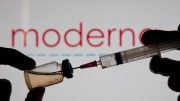
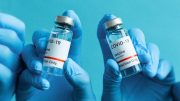
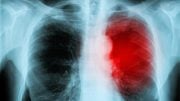

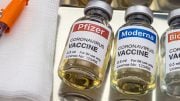
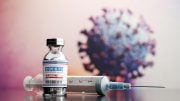

Who do you think you are kidding?
Israel found up to 1 in 3,000 in teens and young adults in their comprehensive study
AHA has a abstract showing dramatic increase in heart inflammation post mRNA
We know majority of injuries are never reported, and it just came out that Pfizer misrepresented early safety signals
This WILL out –
And, the fact that you keep misrepresenting the data and play these games will make it worse
https://www.nejm.org/doi/full/10.1056/NEJMoa2109730
Pfizer suppressed data showing SIGNIFICANT safety signals
Taiwan pulled Pfizer for under 18s – myocarditis
Moderna has been restricted or pulled in multiple European countries
They don’t warn you before jabbing you about anything, they also do no follow up. If you can detect one case of a heart irregularity in one of thousands then it’s reasonable to assume there may be something going on in a lot of people that was never detected. The potential risk is being downplayed.
f*ck it. it really scares me now. I was diagnosed to have right bundle blockage on my heart early this year. I was rejected by the doctor on site for Pfizer last July and if I want, I could bring doctor’s certificate if I want to get vaccinated, the doctor on site said. I am told by my husband to not to get jabbed because of my condition. I eagerly told my company my situation and from then on, kept on persistently asking whem will I have an appointment on my cardiologist and see if I can reconsider to get a jab because sooner or later, the government will mandate that a workplace will have no jab, no work policy or something similar. I kept on delaying because I’m scared of the adverse effects.. but these past few weeks they are really getting into my nerves. they bugged me off everytime they have the opportunity to asked me. I can remember that one time I clearly told my supervisor that my husband doesnt want to get me jab anymore due to health risk but they continued to asked and talk it out out on me. eventually, a few weeks back, I recieved a phone call from the hr admin or something that in the companyz there are only 3 people who is not yet vaccinated and includes me and suggested that I can opt for a “walk-in” to get my jab done. Although I already got a medical clearance a few days ago from my cardiologist that time, I have no intention to push through since I also doubt the clearance the doctor gave me..because no laboratory was done to me, just interview and he just said, I can now get vaccinated and I should go back to him after I got my jab done. fast forward to last week, my supervisor said that the compant will soon impliment the policy of if someone dont get a jab, then either they undergo swab test (I dont know how often) and to our expense (not the company’s) in order to continue to work. Due to my nature of work, I have to go to office at least 4x a week (we originally have 5days a week working schedule but due to skeletal workforce and reduced days of work from aug.) our wages got reduced too. (to be fair, as of this writing,we are back to 5days a week again) but being under a pandemic when your limited income is a big problem in pulling ends meet for your family and financial obligations to bank, electricity, food and more, getting a swab every now and then at your own expense is no joke. So she suggested that I should take my jab the end of the week. unfortunately, the only vaccine that was available on that day (and this batch, so to speak) was Moderna. I am a bit skeptical but due to my situation where I can’t afford to loose a job, I took the jab. Now few days after that jab comes this news..Now I am seriously scared the hell out because of this news. I am 37,female and has a heart condition and took a jab of Moderna as my first dose..All falls into category.and oh, I am slightly obese too. My blood kicks high whenever Im anxious or stressed or tired.. And I get easily nervous..it runs in the blood. My mom has nervous breakdown and hypertension too. so… does it mean I have to write a farewell letter now while I still can?? I am now really scared. And ow, can anyone clarify if those who have cases of adverse effects’ conditions now. sorry for the question but, are they still alive? well? or..you know..are they now gone? or some of them? at least can I get everyone who pushed me to get the jab be liable if something happens to me? well..that’s my random thoughts as a scared person now.
This seems to support other studies performed related to Myocarditis. This is what a trusted Doctor and personal friend of mine sent to me after I asked some questions about it:
“Myocarditis is uncommon among patients with and without COVID-19; however, COVID-19 is a strong and significant risk factor for myocarditis, with risk varying by age group. The findings in this report underscore the importance of implementing evidence-based COVID-19 prevention strategies, including vaccination, to reduce the public health impact of COVID-19 and its associated complications.”
https://www.cdc.gov/mmwr/volumes/70/wr/pdfs/mm7035e5-H.pdf
That article states a 16x increase in myocarditis with actual covid infection vs not being covid infected.
And here’s one talking about vaccine related side effects…
“Some vaccines are associated with myocarditis,5 including mRNA vaccines,1-4 and the Centers for Disease Control and Prevention recently reported a possible association between COVID-19 mRNA vaccines and myocarditis, primarily in younger male individuals within a few days after the second vaccination, at an incidence of about 4.8 cases per 1 million.6 This study shows a similar pattern, although at higher incidence, suggesting vaccine adverse event underreporting. Additionally, pericarditis may be more common than myocarditis among older patients.”
https://jamanetwork.com/journals/jama/fullarticle/2782900
https://www.cdc.gov/coronavirus/2019-ncov/vaccines/safety/myocarditis.html
So the CDC acknowledges there is a slightly increased risk of mostly self limiting myocarditis after vaccine but the research shows us that ACTUAL virus related myocarditis is much higher.